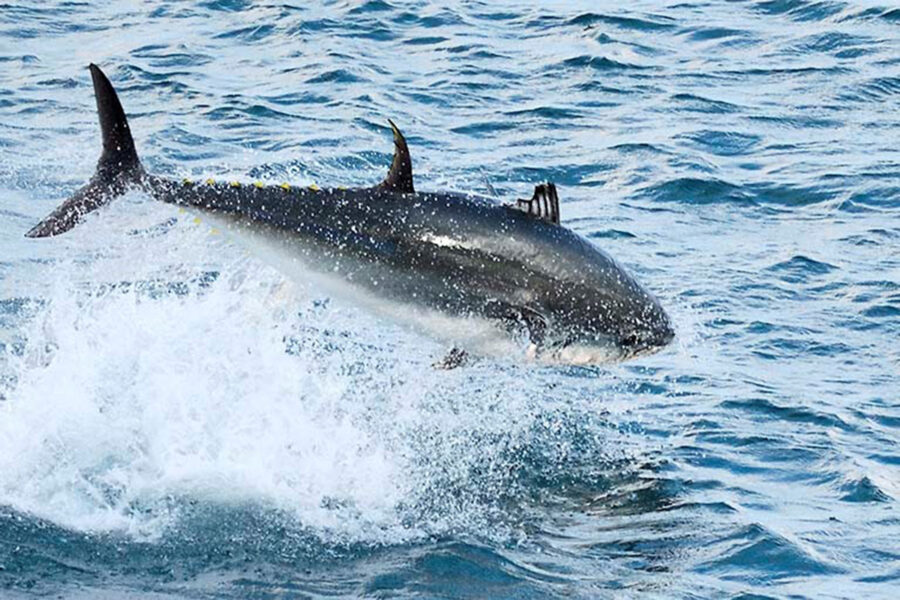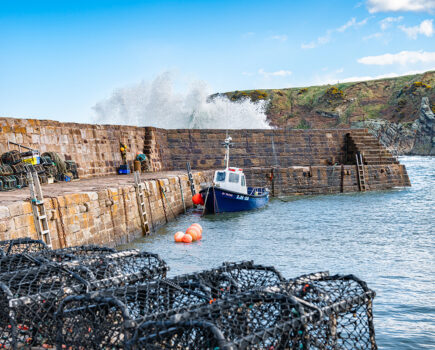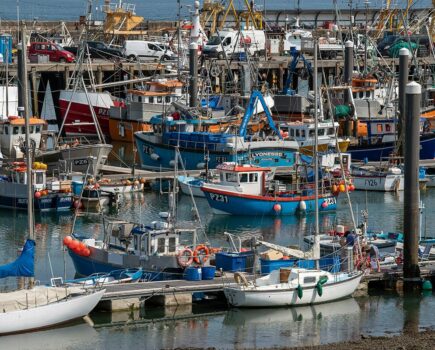With the 2025 bluefin tuna season fast approaching – it opens on 1 July – the MMO is yet to contact successful applicants from the commercial sector confirming that they have licences.
In 2024, 13 licences were issued, each with an individual quota of 3t – this has been increased in 2025, to 15 licences. The 2024 issue saw complaints from many of the 80 failed applicants about the process
of awarding licences, after vessel owners who had invested heavily in the 2023 fishery, as well as undertaking training in catch handling and developing marketing plans with restaurants and fish buyers, failed to obtain licences in 2024.
Even more controversially, Defra has signalled an exponential rise in the number of catch and release licences for 2025. The recreational fishery has moved from a handful of carefully trained and monitored commercial charter vessels at the start of the trial catch and release tagging (CHART) fishery in 2021 to as many as 180 in 2025.
Self-reported mortality of tuna by catch and release vessels in 2024 – which were not monitored by Cefas observers, and had not had to undertake in-person training on catch and release techniques – was substantially lower than that recorded by Cefas scientists during the original pilot scheme.
The suggested number of catch and release licences has caused alarm, with scientists, commercial fishermen and wildlife advocates all expressing concern at the potential mortality resulting from this increase, which could endanger UK quotas for the species in future years.
Our coverage of the issue has generated a lot of interest, and caught the attention of the UK fisheries minister. Mentioning it in a Westminster debate, he also welcomed an offer from St Ives MP Andrew George to chair a public meeting that will try to find a way forward that all stakeholders can agree on. We’re pleased to confirm that Fishing News has arranged the meeting to take place in Newlyn, on the morning of Monday, 19 May. We have invited representatives from the commercial fishery, the charter angling sector, the Wildlife Trusts and an independent scientist to participate. Cefas will give a presentation on the findings from its well-regarded CHART scheme, and its experience of training charter vessel skippers in catch and release, and tagging of bluefin.
Andrew George told FN: “The return of bluefin tuna is a success, though it presents obvious challenges. I look forward to hearing from expert speakers to ensure we get to the facts about all the risks and opportunities.
“Fisheries minister Daniel Zeichner has told me he is looking forward to hearing how it goes, and if we can draw any conclusions to inform Defra’s plans for licence conditions for the 2025 bluefin tuna season, which starts on 1 July.
“I hope our discussion will conclude with an agreeable balance between support for sustainable fishing, allowing the bluefin tuna population to continue to thrive, and effective marine conservation which – amongst many other things – has helped to create these fishing opportunities.”
Andrew Pascoe, chairman of the South West Handline Fishermen’s Association – which organised extensive training for its members ahead of the 2023 tuna season, many of whom went on to receive licences from the MMO – also welcomed the opportunity for public discussion. He told FN: “The return of bluefin to British waters offers a fantastic opportunity for the inshore commercial sector and the commercial charter sector alike to take part in their own sustainable fisheries.
“I would have preferred Defra to take the same precautionary approach to the recreational fishery as it has done with the commercial sector. Issuing 180 licences, especially to private recreational vessels, will only water down the world-class catch and release fishery we have in our waters for the charter sector, and increase bluefin mortality.
“Bluefin tuna are not like any other species that swim in our waters. Inexperienced and untrained skippers and anglers will lower survival rates and increase mortality. To ensure the future of both of these fisheries for generations to come, we have to get the management right, or bluefin in our waters will be consigned to history books once again.”
We will publish details of the meeting, which is open to anyone with an interest in the fishery, as soon as we have confirmed the line-up of speakers, venue and start time.
This story was taken from the latest issue of Fishing News. For more up-to-date and in-depth reports on the UK and Irish commercial fishing sector, subscribe to Fishing News here or buy the latest single issue for just £3.50 here.
Sign up to Fishing News’ FREE e-newsletter here.








